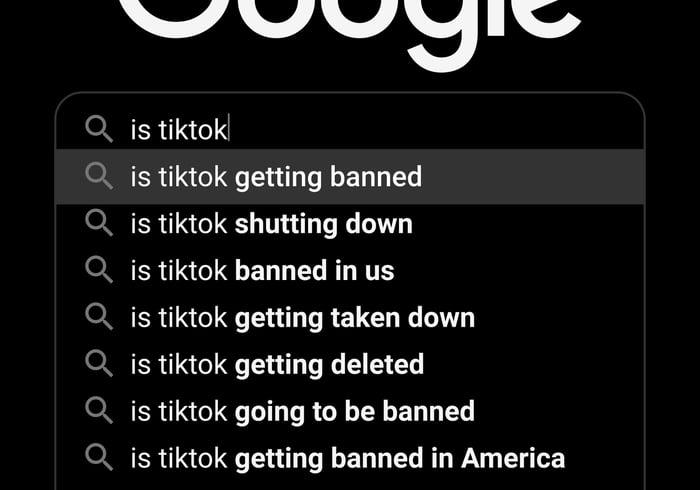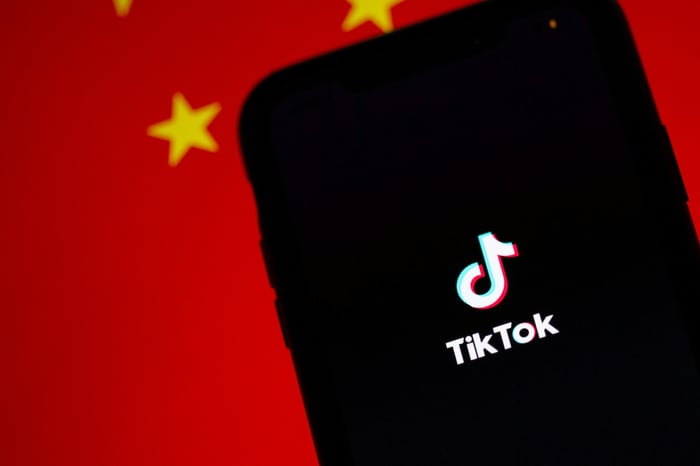
Should the US Ban TikTok? A Common Sense Analysis
BAN TIKTOK? THAT'S NOT THE RIGHT QUESTION.
Table of Contents
- BAN TIKTOK? THAT'S NOT THE RIGHT QUESTION.
- Banning TikTok: Our Common Sense Framework
- Freedom of Speech: Who Does It Protect?
- Media Ownership Rules and Social Media Oversight
- The Question of Foreign Ownership
- Why TikTok Needs to Restructure to Operate in the U.S.
- TikTok’s Restructuring: A Must for Operating in the U.S.
- Three Key Issues TikTok Must Address:
- Is TikTok a Publisher or a Platform?
The conversation around TikTok—whether to ban, regulate, or allow it to operate freely in the U.S.—often stirs strong opinions. But beneath the heated debates lies a straightforward question: How Should TikTok Be Treated Under U.S. Law?
Banning TikTok: Our Common Sense Framework
Banning TikTok is an easy win for any U.S. politician by framing it as the propaganda apparatus of China. But at Digital Majority, we believe democracy thrives when logic, historical precedents, and common sense guide decisions, ensuring freedom of speech is properly protected—not manipulated by fan-flaming politicians on either side of the aisle.
One Big Caveat before we proceed: Given TikTok's massive influence and role in delivering news to P18-34 demographics, our analysis assumes it is classified as a "Publicly Sourced, AI-distributed" US News Publisher.
Our framework analyzes:
1. What is the First Amendment and Who Does it Protect?
2. What are the Existing FCC Frameworks that Govern Publisher's Control over Specific Markets?
3. What are the Existing Rules Around Foreign Ownership Rules.
Given TikTok's massive influence and role in delivering news to P18-34 demographics, our analysis assumes it is classified as a "Publicly Sourced, AI-distributed" US News Publisher. 
Freedom of Speech: Who Does It Protect?
The First Amendment exists to protect Americans from government interference, allowing free expression of ideas. However, this protection doesn’t include foreign entities. TikTok, owned by ByteDance—a company with ties to China—doesn’t automatically benefit from these rights. TikTok’s ability to shape and amplify content raises concerns about its influence on public opinion.
Author’s Note: This isn’t about censoring a platform. It’s about applying protections as intended. Free speech is a right for individuals, not a tool for foreign interests to sway domestic audiences.
Media Ownership Rules and Social Media Oversight
U.S. media like TV, radio, and newspapers face ownership limits to avoid monopolies and maintain diverse voices. FCC rules ensure no single organization controls public discourse. These regulations aim to protect the flow of information and prevent undue influence.
Social media, now the primary news source for millions, operates without similar oversight. Platforms like TikTok use algorithms to decide what users see, giving them more influence than traditional broadcasters. Shouldn’t platforms with such wide-reaching impact follow rules that promote balanced and fair access to information?
Author’s Note: When I worked during Univision’s acquisition two decades ago, foreign ownership of media was a key concern. Today’s digital platforms hold far greater influence. Why are they exempt from similar scrutiny?
The Question of Foreign Ownership
U.S. law limits foreign control of media companies to protect national interests. Rupert Murdoch had to become a U.S. citizen before purchasing Fox to comply with these rules. This ensures accountability and aligns ownership with American values.
TikTok, however, has vague ownership ties and potential foreign influence. Without clear control by a U.S.-based entity or individual, how can the platform be held accountable? Its operations raise questions about who ultimately oversees its decisions.
Author’s Note: The issue isn’t foreign ownership itself but the lack of transparency and accountability. Platforms like Facebook have identifiable leadership. With TikTok, it’s unclear who holds responsibility for its actions.
Why TikTok Needs to Restructure to Operate in the U.S.
This discussion isn’t about singling out TikTok but ensuring consistent enforcement of laws. The platform crosses regulatory boundaries, including ownership concentration rules, its role as a content publisher, and foreign ownership limitations. These are the same rules that apply to traditional media companies.
Clear standards must be set to address TikTok’s influence while holding U.S.-based platforms accountable as well. The public deserves transparency and fairness across all platforms of similar scale and impact. If TikTok wants to operate in the U.S. without restrictions, it needs to align with these guidelines.
For reference, review:
- FCC’s Media Ownership Rules
- Foreign Ownership Regulations under Communications Act of 1934
- First Amendment Protections and Limitations
TikTok’s Restructuring: A Must for Operating in the U.S.
This analysis doesn’t target TikTok unfairly but stays consistent with past regulatory standards. TikTok has crossed various regulatory boundaries tied to U.S. laws on media and public discourse. These include rules on ownership concentration, its role as a publisher, and foreign ownership restrictions. Resolving these issues is essential for TikTok to remain competitive in the U.S. By focusing on these topics, we can help the public better grasp the challenges at hand. U.S. regulators must also stop ignoring local platforms and enforce consistent standards for all influential platforms.
Three Key Issues TikTok Must Address:
Ownership Concentration Rules: Social networks are modern news distributors, and FCC rules should extend to them.
Platform vs. Publisher Role: TikTok acts as a crowd-sourced publisher, especially for key demographics like adults aged 18–34, unlike neutral platforms such as Snapchat.
Foreign Ownership Limits: U.S. media regulations require ownership to tie back to American citizens. This ensures no undue foreign influence.
Is TikTok a Publisher or a Platform?
TikTok’s influence, especially on users aged 18–34, positions it as an "AI-driven, user-sourced publisher." However, TikTok—and similar platforms like Facebook and X—claim they are neutral platforms protected under the DMCA.
Should platforms like TikTok face the same scrutiny as traditional media? Share your opinion. Let’s discuss how to balance tech innovation with accountability, especially as debates about whether to ban TikTok continue.


